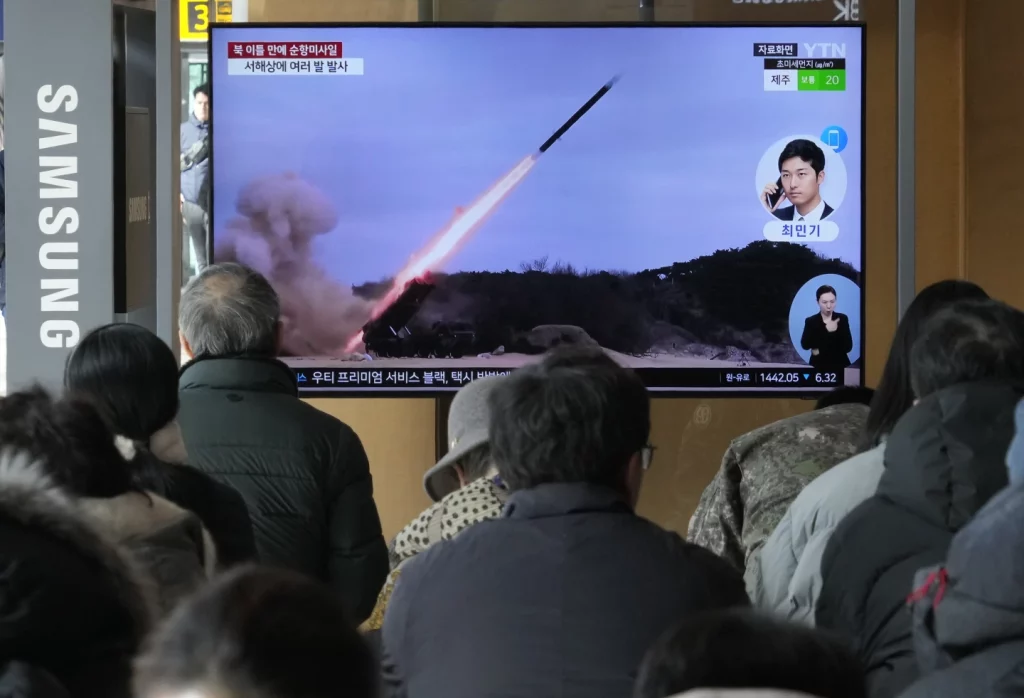
SEOUL, South Korea (AP) — North Korea fired multiple cruise missiles into waters off its western coast Tuesday in its third launch of such weapons this month, South Korea’s military said, as the North continues to flaunt its expanding arsenal of weapons designed to overwhelm its rivals’ defenses.
South Korea’s Joint Chiefs of Staff said the South Korean and U.S. militaries were analyzing the launches that were detected around 7 a.m. It did not immediately provide more details, including the number of missiles fired, how far they flew, and whether they were launched from land or sea.
The launch followed tests on Jan. 24 and Jan. 28 of the Pulhwasal-3-31 cruise missile North Korea says is designed to be fired from submarines.
Following the second launch, North Korean leader Kim Jong Un reiterated his goal of building a nuclear-armed navy to counter what he described as growing external threats. It’s not yet clear if that water launch Sunday was conducted from an actual submarine or an underwater barge.
Tensions on the Korean Peninsula are at their highest point in years, after Kim accelerated his weapons development to an unprecedented pace while issuing provocative nuclear threats against the United States, South Korea and Japan.
The United States and its Asian allies in response have strengthened their combined military exercises, which are increasingly featuring U.S. strategic assets such as aircraft carriers, long-range bombers and nuclear-powered submarines. The countries are also sharpening their deterrence strategies, with Seoul in particular seeking stronger assurances from Washington that the United States would swiftly and decisively use its nukes to defend its ally in the event of a North Korean nuclear attack.
The North on Jan. 14 also tested a new solid-fuel intermediate-range missile, which underscored its efforts to advance its weapons that could target U.S. assets in the Pacific, including the military hub of Guam.
There are concerns that Kim, emboldened by the steady advancement of his nuclear arsenal and strengthened ties with Russia, would further ramp up pressure against his rivals in an election year in the United States and South Korea.
Aside of weapons tests, there are also growing concerns in the South about a direct North Korean provocation. The North in early January fired hundreds of artillery rounds for three consecutive days into waters near their disputed western sea border, prompting the South to conduct similar firings in response. The exchange caused no known casualties or damage, but the sea boundary had been the site of several bloody skirmishes and attacks in past years.
During a fiery speech at Pyongyang’s parliament on Jan. 15, Kim declared that the country was abandoning its longstanding objective of a peaceful unification with war-divided rival South Korea and ordered the rewriting of the North Korean constitution to cement the South as its most hostile foreign adversary. He then said that the North has no intention to avoid war and would use its nukes to destroy the South if provoked.
Experts say the North is aiming to diminish South Korea’s voice in international efforts to resolve the nuclear standoff and eventually force direct dealings with Washington as it seeks to cement its nuclear status and negotiate a release of U.S.-led sanctions from a position of strength.